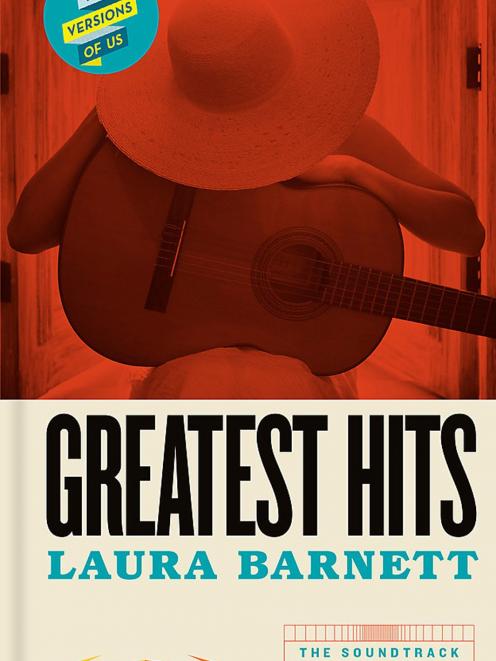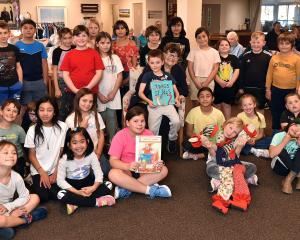
Laura Barnett
Hachette
The boundaries between literature and music have always been fascinatingly porous. Bob Dylan being awarded the Nobel Prize sparked lively dialogue about where one form ends and the other begins, and the ambitious Greatest Hits continues that debate.
Laura Barnett tests the boundaries both in theme — the book is the fictional biography of British singer-songwriter Cass Wheeler — and in form, through her collaboration with Mercury-nominated singer-songwriter Kathryn Williams, who has set the book’s lyrics to music for a separately released studio album.
Barnett is clearly drawn to the "concept novel": her bestselling debut, The Versions of Us, tracked a romance through three parallel worlds, drawing comparisons with Sliding Doors. Here, she starts each chapter with one of 16 songs chosen by Cass, now in her mid-60s and retired, for a compilation of her greatest hits, the "songs that tracked the arc of a lifetime". Set over a single day which, Mrs Dalloway-like, builds to a party, the narrative reveals Cass’ backstory; each song recalling a different episode, including the tragedy that precipitated her breakdown and led to her personal and artistic withdrawal.
The novel is unsentimental in its exploration of her traumatic childhood and the role it played in her development as a creative artist. The mercurial moods of her mother coloured her early years and when she eventually abandoned her, Cass felt "the incommunicable sense of an emptiness opening in some deep part of herself". Music, to some extent, fills the void. Cass first gains a love of music from the piano played by a friend’s mother and then when she goes to live with her aunt, her passion develops further with a new guitar, Joan Baez records and crucial contacts.
Greatest Hits skilfully traces her trajectory to womanhood ("She has shucked off the skin of the girl she used to be"), and paints an intricate portrait of Cass’ relationship with her musical partner, Ivor. Through their intense, doomed love affair Barnett brilliantly conjures the corrosive effects of fame and competitiveness, the yearning for paths not taken. Ivor, too, had a troubled childhood and the word "hit" echoes in all its meanings; from musical successes to the sting of slaps, scars and hidden bruises. The time in childhood when Cass was hit by her mother reverberates shockingly.
The middle-aged Cass is approached by publishers about writing a memoir and this novel calls to mind recent memoirs by British musicians born in the 1950s and ’60s: Viv Albertine, Brix Smith Start, Chrissie Hynde.
The mother/daughter relationship is the most moving aspect of this excellent book, and as Cass becomes a mother herself the novel asks, to what extent can harmful patterns be broken? And in the bleakest moments of our lives — when we tragically replicate hurt and lose what we most love — in what ways does music console and redeem? This engaging, emotionally charged novel about music, motherhood and mental illness deserves to be a hit.
— Guardian News and Media
Comments
All I can say is I was once drummed out of Rehab for playing records deemed 'personal'. What? Oh, Chris Rea, September Blue, Country Joe 'Off To Vietnam' and Joan Baez saying 'This is my husband David's favorite song'.












